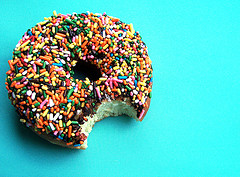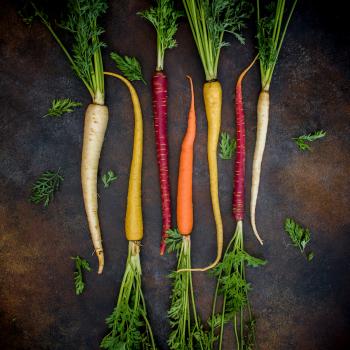 I’ve written before about my father’s alcoholism. From my adolescence until his death, I spent a lot of time and energy being angry with him, and letting myself be hurt by him. At the core of my anger and hurt was the belief that he was consciously and willingly choosing alcohol over everything else—our family, his work, his passion for life and music. Dignity, peace, joy. Me.
I’ve written before about my father’s alcoholism. From my adolescence until his death, I spent a lot of time and energy being angry with him, and letting myself be hurt by him. At the core of my anger and hurt was the belief that he was consciously and willingly choosing alcohol over everything else—our family, his work, his passion for life and music. Dignity, peace, joy. Me.
Instead, he chose getting drunk, getting sick, losing everything good. I couldn’t understand this, or forgive it. At his death, our relationship was virtually non-existent. Watching him struggling for breath in the end, and looking so ravaged at a relatively young age, some part of me kept thinking, perplexed, You chose this.
I have an eating disorder. My struggles with it now are much less intense than they were, but the disorder isn’t vanquished. Years ago, in my efforts to figure out my behavior, I read up on the idea of sugar addiction, and decided that the word “addiction” aptly described my behavior with sugar throughout my life.
As a remedy to compulsive eating, binges, terrible mood swings, and depression, I cut out sugar and everything that acted like sugar in my body. I kept this up for six months.
During that time, I felt fantastic. My moods were steady, my sleep was good, binges were infrequent, and I noticed that I could experience joy in a way I previously had not. The low-to-mid-grade depression I’d always had seemed cured. From the way my body and brain chemistry responded, I knew that sugar addiction was a real thing and not just a term to justify poor self-control.
Then, I fell off the wagon.
I distinctly remember the pattern of my thinking: I can have this one thing. I bet I’m cured of my addiction, and this little visit with sugar won’t affect me. Everyone else eats sugar without a problem. I just need self-control. I have a right to this.
Just this little bit. This time will be different.
(It’s called denial, and there’s a reason it’s so popular.)
It didn’t occur to me to connect my behavior with my father’s until I was diagnosed with diabetes, after his death.
What happens in my body when my blood sugar is high as the result of eating too much carbohydrate in any form is not good. Over time, it would cause my pancreatic cells to die and perhaps lead to kidney disease, eye disease, nerve disease, and heart disease.
These things would ultimately take life away. Maybe not all at once (though they could, in the case of stroke, for example), but they would slowly rob me of my ability to work, travel, be independent, be present for loved ones, feel good.
Chronically high blood sugar is a slow suicide, as my father’s drinking was. And binging on sugar or carbs, or even eating a controlled amount that for other people would be moderate, raises my blood sugar to unacceptable levels.
Do I do it anyway?
Yes. Sometimes, I do.
Are there people who love me? Who I love? Many.
People who need me or would miss me? Some.
Are there still things I want to accomplish? Yes.
Do I have a chance of accomplishing them if I stay healthy? A pretty good chance.
And yet, there are moments I would trade all of these things for a pan of homemade mac and cheese, a few fresh crumb donuts with a maple old-fashioned chaser and a loaf of the warm artichoke bread you can get at that little store in Pescadero, California.
I’d sell my birthright. Maybe not for “pottage,” as Esau did, because it’s not so tasty if modern recipes are any guide. But for a sublime lasagna? Yes.
There are days I understand Nick Cage’s character in Leaving Las Vegas, the guy who holes up in a seedy Vegas motel with the express intent of drinking himself to death. I can see a moment—maybe in my late sixties, maybe later—when I say, Okay, I’m tired of fighting, let’s do this.
For me it would be Reno, which is more my speed, and I’d live out my remaining days at the Circus Circus buffet, maybe, not testing my blood sugar, not taking my meds or insulin, assuming I need insulin by then.
In this fantasy, there’s never a thought about where my husband might be, or my friends and family and colleagues. No possessions or home or career. Only me and whatever it is I somehow still think the bliss of uncontrolled, private eating can give me that nothing else can.
Waffles and pancakes every morning. Whole pizzas every night. Room service warm brownie sundaes before bed. Tubs of popcorn and giant Cokes and pound-bags of M&Ms at the movies. In between: big, soft grocery store cookies, sleeves of Fig Newtons, bags of chips.
Until my organs shut down and I drift to heaven’s gate on an eternal sugar high.
Even as I type this, here’s one thing happening in my brain: Hey, that sounds like a pretty good idea, actually. Do I really have to wait thirty-five years?
That I can even imagine myself choosing that fantasy over all of the good things I have tells me something I couldn’t or wouldn’t see before: I have judged my father harshly.
His disease was alcoholism. My disease is diabetes. Both of our bodies telling us in very clear ways: stay away from this substance or you will surely die. And both of us, like Adam and Eve faced with the forbidden fruit, hearing a whispering voice that says, You have a right to this.
I can’t explain or defend why I still sometimes choose this un-life over the birthright of life given me as a child of God, any more than my father could explain it.
I do understand, though. And that understanding has given me compassion, and maybe someday that compassion will lead me to forgive us both.
To be continued tomorrow.
Originally published in Good Letters on June 10, 2011.
Sara Zarr is the author of five novels for young adults, most recently The Lucy Variations, which the New York Times called “an elegant novel.” Her sixth, a collaborative novel with Tara Altebrando, came out December 2013. She’s a National Book Award finalist and two-time Utah Book Award winner. Her books have been variously named to annual best books lists of the American Library Association, Kirkus, Publisher’s Weekly, School Library Journal, the Guardian, the International Reading Association, the New York Public Library and Los Angeles Public Library, and have been translated into many languages. In 2010, she served as a judge for the National Book Award. In fall 2014, she received a MacDowell Colony Fellowship. She currently lives in Salt Lake City, Utah, with her husband, and online at www.sarazarr.com.
Photo above credited to Sofia Smith and used under a Creative Commons license.











